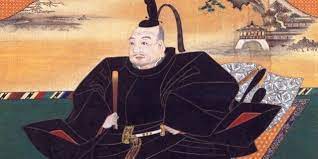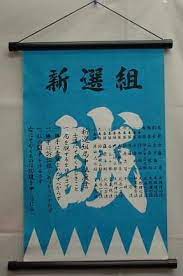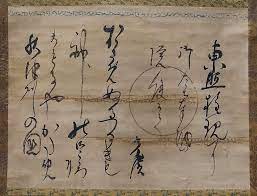
日本人は、外国人に比べて、自分の感情を顔に出さない傾向があるかも知れません。
これも、武士道から?――バイリンガルで、どうぞ。
A Japanese might have a tendency not to betray his emotions on his face, compared with
a foreigner. Does this come from Bushido, too? ―― more to come both in English and
in Japanese.
The discipline of fortitude on the one hand, inculcating endurance without a groan, and
the teaching of politeness on the other, requiring us not to mar the pleasure or serenity
of another by expressions of our own sorrow or pain, combined to engender a stoical
turn of mind, and eventually to confirm it into a national trait of apparent stoicism.
勇気の鍛錬は、どんな事に対しても、ぐちを言わない忍耐の精神を養い、礼の強調は、
自分の悲哀や苦痛をあらわして、他人の快楽や安静を妨害しないようにすることで
ある。この二つが相合して、ストイック的な心性を生み出し、ついには外見的
ストイック主義といってもよいわが国民性を形成した。
I am inclined to think that in one sense we have to feel more than others――yes, doubly
more――since the very attempt to restrain natural promptings entails suffering. Imagine
boys――and girls, too――brought up not to resort to the shedding of a tear or the
uttering of a groan for the relief of their feelings, ――and there is physiological problem
whether such effort steels their nerves or makes them more sensitive.
ある意味においては、われわれ日本人は、他民族以上に感情が細やかで、自然に発する
感情を押さえることに、かえって苦痛を感ずるほどである。たとえば、わが国の少年
少女は、幼い時から、自分の感情を押さえて、いたずらに涙を流したり、苦痛の声を
だしたりしないように教育されてきた。このような努力は、神経をにぶくするものなの
か、それともかえって敏感にするものなのか、まさに生理学上の一問題であろう。
It was considered unmanly for a samurai to betray his emotions on his face. “He shows
no sign of joy or anger,” was a phrase used, in describing a great character. The most
natural affections were kept under control. A father could embrace his son only at the
expense of his dignity; a husband would not kiss his wife, ――no, not in the presence of
other people, whatever he might do in private!
武士が、感情を顔にあらわすのは男らしくないと考えられ、「喜怒を色に現わさず」
とは、強い性格を評価する言葉であって、最も自然な愛情をも抑制されてきた。
たとえば、父がその子を抱くのは、父の威厳を害 (そこな) うことであり、夫は、私室に
おいてはともかく、人前では妻にキスしなかった。
There may be some truth in the remark of a witty youth when he said, “American
husbands kiss their wives in public and beat them in private; Japanese husbands beat
theirs in public and kiss them in private.”
ある青年が「アメリカ人は人前で妻にキスをし、私室では妻をなぐる。日本人はこれと
反対に、人前では妻をなぐり、私室では妻にキスをする」と、たわむれに言った言葉の
中にも、いくらかの真理はあるだろう。
In the same discipline of self-restraint which is accountable for the absence of more
frequent revivals in the Christian churches in Japan. When a man or woman feels his or
her soul stirred, the first instinct is quietly to suppress the manifestation of it. In rare
instances is the tongue set free by an irresistible spirit, when we have eloquence of
sincerity and fervour.
日本のキリスト教会において、信仰が熱狂的なかたちで現われることが少いのは、
日本人のこの自制の鍛錬で説明できるかもしれない。男子でも女子でも、おのれの霊魂
に感激をおぼえるところがあれば、まず自分の本能を静かに抑え、外へあらわさない
ように努める。たまたま誠実と情熱につき動かされることがあっても、心を抑えきれず
に、思いつくままに話すことはまれである。
To give in so many articulate words one’s inmost thoughts and feelings――notably the
religious――is taken among us as an unmistakable sign that they are neither very
profound nor very sincere. “Only a pomegranate is he――so runs a saying “who, when
he gapes his mouth, displays the contents of his heart.”
多くの巧みな言葉をついやして、自分の内心にあるもの、ことに宗教的な思想や感情を
発表することは、われわれの間にあっては、その思想や感情は深遠でもなく誠実でも
ないことの証拠であるとされた。ことわざにも「口開いてはらわた見ゆる柘榴 (ざくろ)
かな」という言葉が (あり、多言巧言の者は、口を大きく開いて自分の心情を暴露する
ようなものだ、というので) ある。
My first anthology is published now.
Please purchase it from Amazon if you are interested in.
現在、私の初めての詩集が出版されています。
興味のある方は、アマゾンでご購入をお願いいたします。
■プライバシー・ポリシー
当ブログは、Amazon.co.jpを宣伝しリンクすることによってサイトが紹介料を獲得
できる手段を提供することを目的に設定されたアフィリエイト宣伝プログラムである、
Amazonアソシエイト・プログラムの参加者です。このプログラムにおいて、
第三者がコンテンツおよび宣伝を提供し、ユーザーからの情報を収集し、訪問者の
ブラウザーにクッキーを設定することがあります。プログラムにおいて情報の
扱いについてはAmazon.co.jpプライバシー規約をご確認ください。







